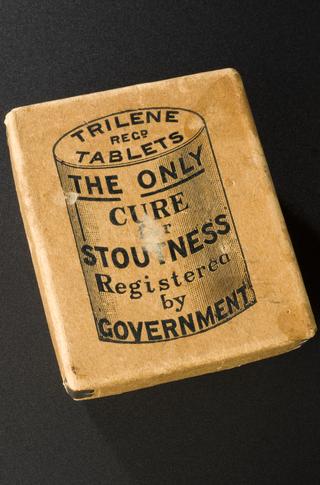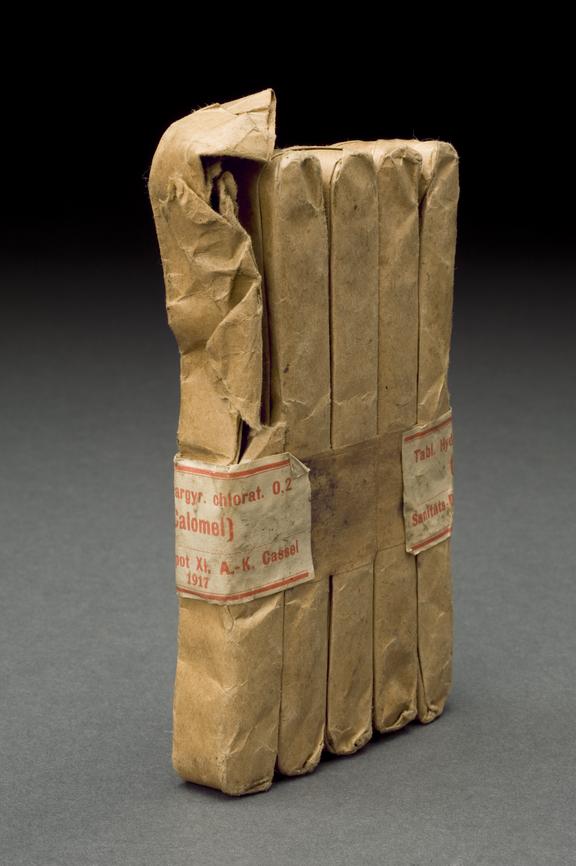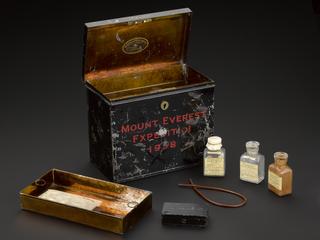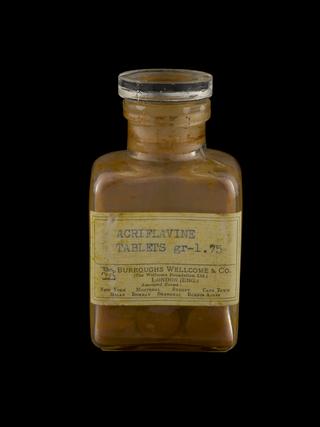

Five packets of mercurous chloride tablets (calomel) supplied by 11th Army Corps, Cassel, German, First World War
Mercurous chloride (HgCl) is also known as calomel, a popular drug from the 1800s. It was prescribed for a number of infections – most notably syphilis. However, as mercury is highly toxic it tended to act as a slow poison rather than a cure. This packet contains calomel tablets to be taken orally and was supplied by the 11th Army Corps of the German Army to its medical personnel. It originally contained ten packets but one has been used.
Calomel was used as an antiseptic and laxative during the First World War, but its main function was to combat sexually transmitted infections – then referred to as venereal disease (VD) – such as syphilis and gonorrhoea. These created huge problems to all sides involved in the conflict. On any one day throughout the duration of the war, tens of thousands of soldiers would be under treatment for VD.
Details
- Category:
- Materia Medica & Pharmacology
- Collection:
- Sir Henry Wellcome's Museum Collection
- Object Number:
- A635099
- Materials:
- wrapper, paper
- Measurements:
-
overall: 18 mm x 70 mm x 127 mm, 0.17kg
- type:
- calomel

